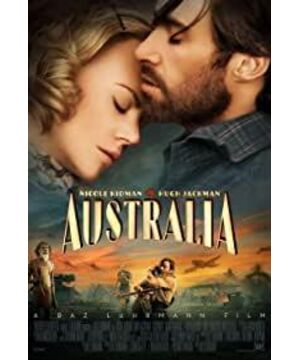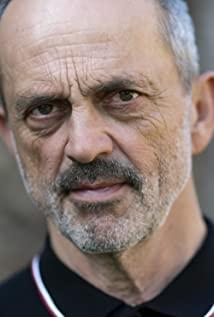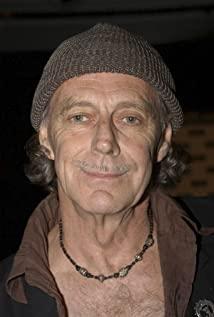The original title of this film is "Australia". Anyone who knows English for the first time knows that it can be simply translated as "Australia", but the Chinese translation is still translated into "Australia in troubled times", which is a bit like forcing the audience to associate it with "Australia". Gone with the Wind" contact. Sure enough, there are "modern version of "Gone with the Wind" and "Australian version of "Gone with the Wind" among the promotional keywords, and even the promotional posters are very similar to "Gone with the Wind". The director's intentions are understandable, but Rolling Stone's criticism of the film's "overly bloated subplots and overly eager sensational attempts will make you feel down".
In my opinion, this kind of sensational attempt also leads to the suspicion that the characters in the film are "one-stringed". For example, the hero Cowboy is always invincible, the villain Fache is always evil, the native King George is always omniscient, etc. Wait. Such repeated interpretations naturally tend to cause aesthetic fatigue. Although the latter two characters are supporting roles, it doesn't make them so unreliable, right? Fache first killed the heroine Sara's husband, the owner of "Distant Ranch", abused his own son Nara, and killed his second boss, Carney, and replaced him. In the end, he never tired of hindering Sara Gathering with Nara, and shooting at Nara with a strong sense of revenge during the war, this practice of "breaking the jar and breaking the jar" is reminiscent of Ruth's selfish fiance in "Titanic". Of course, the spear that Fache fired just in time for King George would kill himself if he did a lot of injustice.
Seeing this, in addition to being very happy, I still have to pay attention to another "unreliable character" King George. It is undeniable that the film is full of reverence and concern for the indigenous culture, and this concern is shown to the extreme in Sarah's insistence on taking Nara, the mixed-race son of white and indigenous people, as her own child. Moreover, Sarah angrily criticized the white people for concentrating mixed-race children on "missionary islands" to "wash away their indigenous blood", which makes the film more reflective and humanistic. However, the director can't make King George's role so "drifting", right? This aboriginal old man often haunts the top of the mountain, beside the fire, singing original ecological songs, and his judgment of things is always sharp. Although this contains an affirmation of primitive philosophy, logic, and ethics, as well as an advocacy of simple thinking and common sense, the fantasy plots again and again make people feel a little crazy, just like watching "10,000 Years Before History" Like the mother-in-law who knows everything. Moreover, as long as King George appeared in the movie, the audience would laugh. The reason is a bit puzzling, so I won't explain it here.
In addition to the unreliable characters, there are also many unreliable plots in the play. For example, at the critical moment when the herd rushed to the cliff and was about to crash into Nala, the child sang a magic song: "mang goo ni, mang goo mang goo...", making the herd quiet, and everything was safe. After the audience breathes a sigh of relief, they inevitably have questions like this: "In the noisy scene of more than a thousand cows rushing together, how can the cows hear?" Another example is that the protagonists drive the cows through the desert, and there is no such thing as a few days. The news, even the newspapers said that they were submerged together with the cattle, but the director suddenly let them miraculously rush into the camera, and also asked them to drive the cattle to the port in time, and a beautiful transaction was made. Just ask the director, how did they come out? In some unimportant plots, you will not hesitate to write a few paragraphs. Why don't you spread out such a good plot a little bit? How can you just flip this page hastily with a little fantasy?
The most unreliable part is that the "climax" of the film is about to end. In this scene, the artillery fire of the Japanese army made the bustling port instantly deserted. However, all the key figures in the ruins were present. Nara had just reunited with Sarah and the cowboy. At this moment when the curtain call could have been reunited, as mentioned above, the unreliable villain Faqie came out at the right time to commit the last evil in his life, while the unreliable native King George made the most sensible judgment in his life. Peak experience shoots the spear. Finally, the bad guys withdrew from the stage of history, and the real happy ending was finally settled. The director's intentions are still understandable, but they still can't escape the fact that the audience will fall asleep for the last time before the end of the film.
View more about Australia reviews










